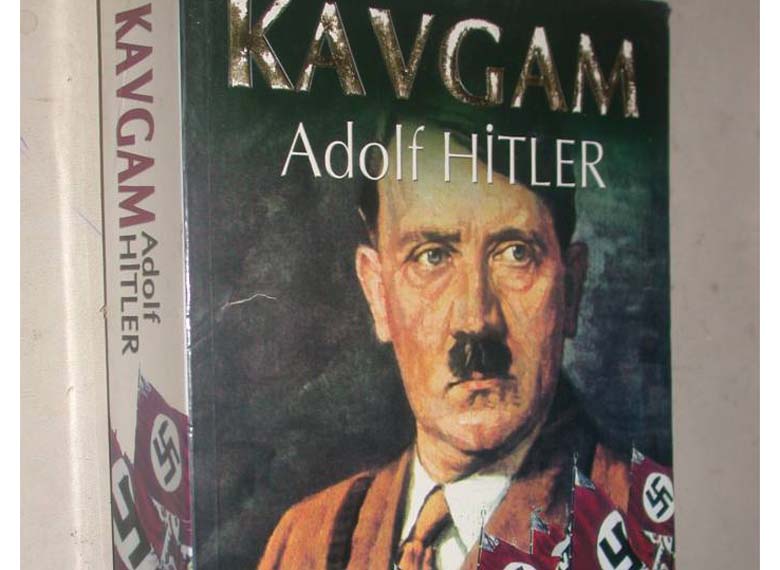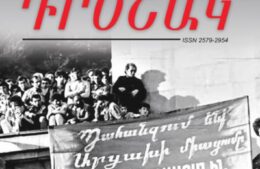Turkey’s newest hero: Adolf Hitler
- (0)

In Turkey, Adolf Hitler has become a hero and a best-seller, with his manic memoirs being sold in an 1,800-store chain of supermarkets
Mein Kampf sells as many as 50,000 copies a year in Turkey
By Robert Fulford
The National Post
In Germany, of all places, anti-Semitism has recently made a fresh and ominous appearance. It became clear when mobs in Berlin reacted to U.S. recognition of Jerusalem as Israel’s capital by waving Palestinian flags while burning Israel’s flag beneath the Brandenburg Gate.
This is one of many countries where a revived anti-Semitism is apparent — Canada and the U.S. are others, where anti-Jewish vandalism is increasing. The German government considers it so disturbing that a commission has been created to deal specifically with prejudice against Jews. Polling in recent years indicates that old stereotypes still live on in the German imagination. For instance, about 10 per cent of the population apparently believes that Jews are now too powerful in Germany.
Sawsan Chebli, a deputy minister in the Berlin government, has argued that Germans should know more about the Holocaust, the central crime of their history. She thinks every student in Germany should make at least one visit to a death camp — a fairly sure way of grasping the emotional and moral impact of triumphant anti-Semitism.
Chebli is a 39-year-old German-born daughter of Palestinian asylum seekers. She’s said that, “My father is a pious Muslim, hardly speaks German, can neither read nor write, but he is more integrated than many functionaries of the AfD (the powerful, popular Allianz für Deutschland).” By “integrated” she means he grasps the meaning of German history.
The AfD, a right-wing party proud of its patriotism, holds that Germany is self-destructively obsessed with the Nazi past. While not anti-Semitic, it holds that Germany should be seen as a “normal” state, rather than a place known mainly for its shameful behaviour. But is it possible to kill six million people and be judged “normal” seven decades later? The AfD hopes to forget the past, not really a possibility.
But if Germany has a troubling amount of anti-Jewish bigotry, Turkey is experiencing a tidal wave. Attacks on synagogues are reported, and programming on the government-owned TV network is clearly anti-Jewish. President Recep Tayyip Erdoğan and other politicians from the ruling AKP use Jews and Israel as scapegoats in campaigning for the general election on June 24. The state-controlled media recently blamed the “Jewish lobby” for the sudden drop of the value in Turkish currency.
On social media the treatment of Jews is outrageous. “Hitler and Nazi Germany will be known and remembered with gratitude and respect” is one line that appears. Another is a quote attributed to Hitler: “One day you will curse me for every Jew I did not kill.”
In Turkey, Adolf Hitler has become a hero and a best-seller. Mein Kampf sells as many as 50,000 copies a year. Publishers feverishly pursue Hitler’s admirers. Thirty-five separate publishing houses have printed translations by at least 21 different translators. Eight new editions came out in 2016, nine in 2017. Hitler’s manic memoirs are now on sale not only in bookstores but also in supermarkets, including the 1,800 stores in the Migros chain.
After all these years, what can they find in Hitler, these Turkish readers? Perhaps they are simply looking for confirmation of what they have always believed. Prejudice teaches envy, which leads to malice. Jews are seen as too prosperous and too powerful. Reuven Brenner, a management professor writing last week in the Wall Street Journal, sees this as a result of Jewish history.
“Self-reliance has been a necessity,” he explains. The Jews were never numerous enough to achieve much in politics or through military power. They focused on scientific, commercial and financial success. “Jews’ success through ages and countries despite severe discrimination” encourages jealousy in those who blame others for their own lack of achievement.
Anti-Semitism is in essence a narrative of vain ambitions and failed dreams. It is immune to rational argument but that’s part of its power: it appeals to those who would like to think but cannot.



















